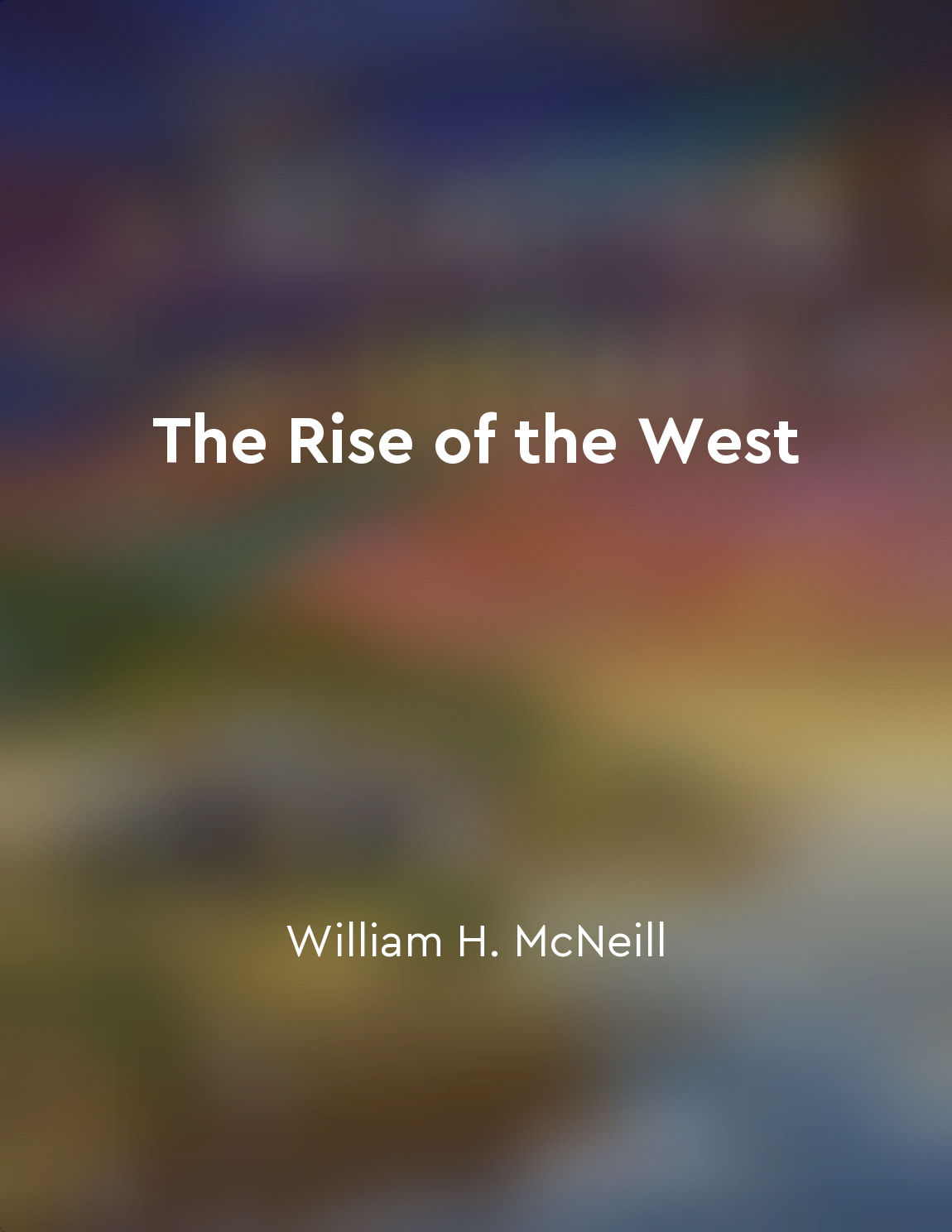The rise of the West leads to global power shifts from "summary" of The Rise of the West by William H. McNeill
The interconnectedness of human societies has been a driving force behind the rise of the West and the subsequent global power shifts that have occurred throughout history. As cultures and civilizations interacted with one another, ideas, technologies, and resources were exchanged, leading to the development of new innovations and systems of governance. The West, with its advanced technology and organizational structures, was able to leverage these exchanges to its advantage, ultimately gaining power and influence on a global scale.
The rise of the West was not simply a matter of one civilization surpassing another in terms of wealth or military might. Rather, it was a complex process that involved the convergence of multiple factors, including geography, climate, population growth, and cultural practices. The West's ability to harness these factors and adapt to changing circumstances allowed it to outpace other regions in terms of economic development and political stability.
One of the key drivers of the West's rise to power was its emphasis on scientific inquiry and technological innovation. By investing in education and research, Western societies were able to make significant advancements in fields such as navigation, agriculture, and medicine. These advancements not only improved the quality of life for Westerners but also gave them a competitive edge in global trade and exploration.
Furthermore, the West's commitment to individual rights and the rule of law helped to create a stable environment for economic growth and political stability. By establishing institutions that protected property rights and ensured fair competition, Western societies were able to foster entrepreneurship and innovation, leading to further economic development and increased influence on the world stage.
As the West continued to grow in power and influence, other regions of the world were forced to adapt to this new reality. Some societies chose to emulate Western practices and institutions in order to compete in the global marketplace, while others resisted Westernization and sought to maintain their traditional ways of life. This tension between tradition and modernity has been a defining feature of global power shifts in the modern era, as different cultures and civilizations navigate the complexities of an interconnected world.The rise of the West has had far-reaching implications for global power dynamics, shaping the course of history and influencing the development of societies around the world. By understanding the factors that have contributed to the West's rise to power, we can gain valuable insights into the dynamics of cultural exchange, economic development, and political change that continue to shape our world today.

Open in app
The road to your goals is in your pocket! Download the Oter App to continue reading your Microbooks from anywhere, anytime.


